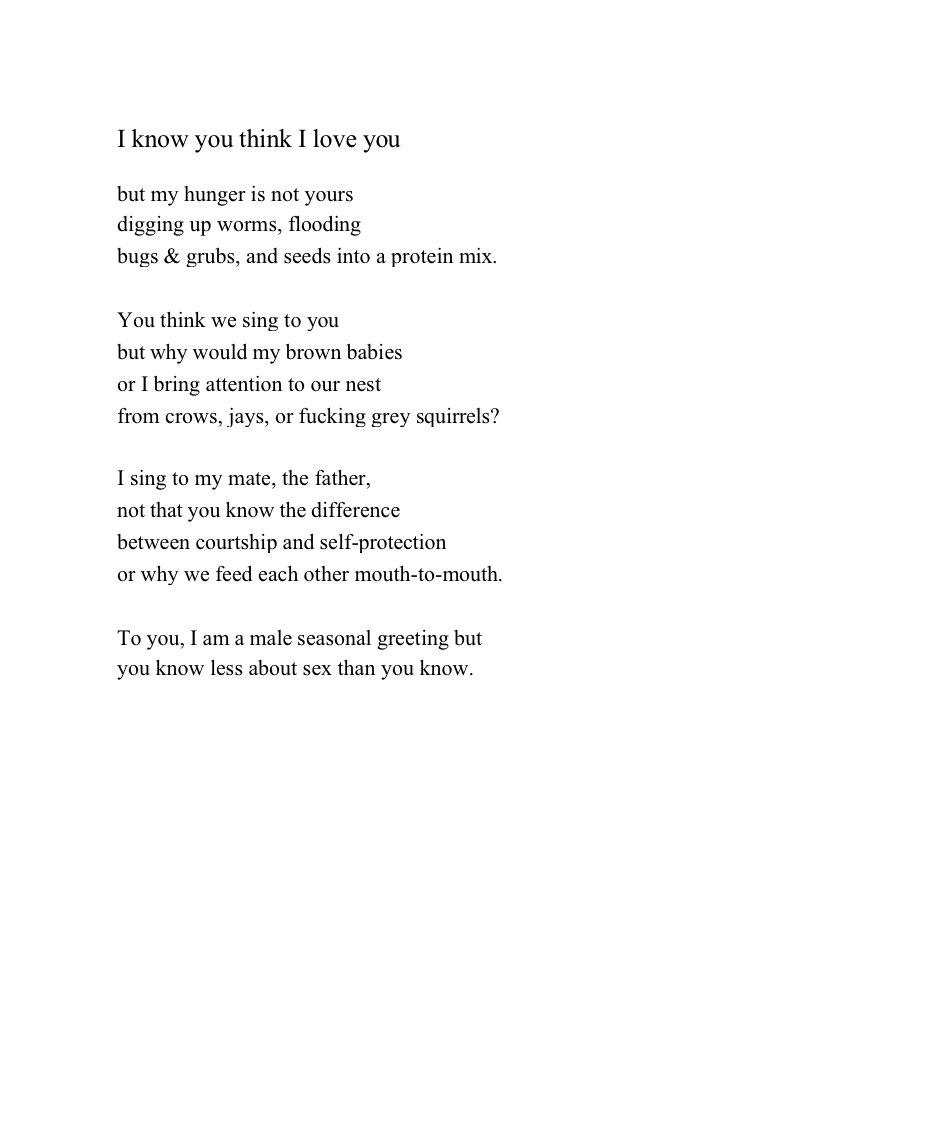Auto-da-fé
The dead-weight door of varnished oak wheezed in the blunt force
of an easterly gust. You were pushed through, wheels impulsive like
a child’s pram, each pew hemmed by stagnant tweed or synthetic leather.
Nothing was as it should be, though they reeled off each hymn,
and outside, on the car floor, a crushed tube of puce lipstick.
Remaining is a burden, a coffin heavy with floral guilt,
its gnawing knot colouring timbre, anger’s torched inscription.
There is that longing; burn the witch, the past, the unsaid,
mount up the sticks as they did in medieval practice, tar,
want then the swift death to feeling, to remembering, to pain.
In the morning the birds sang, and we were glad to be alive.
Later, fledglings hovered against window glass,
by the kitchen, at the back door, testing their limits,
ignorant of such human construct, their reality
as impermeable as a faith you prayed would dissipate.
And yet the river had broken its banks in a fury of will
pouring out across fields, where cattle grazed
by the abbey that once held a muscular echo.
Everything was as it should be, though you struggled in flittering
thought, anchored as a rock-dragged current to sea.
Rhythms sloped out over sand dunes, past
the insistent threat of water and into a car,
seat reclined inside the swelling of a three-inch bruise.
The tide would take it all away, receding idly, the vacuum
before a tsunami of violence, the watching of it from out here.
Treacle vinyl, wire-mesh speaker, black circle of music;
the decline into sound. You sense the needle rasp fill hair,
feel flesh inch along flesh, until streets thin with silence,
leafy footpaths and picket-fenced gardens recoil from the boom
of a gate-crashed house party, fun, exiting ears.
Orla Fay is the editor of Drawn to the Light Press. She is the Poetry Town Laureate for Dunshaughlin, County Meath. Recently her work has appeared in Southword and Abridged. She is working on her second chapbook, What Became of the Horses, and received a professional artist development bursary from Meath County Council Arts Office and Creative Ireland earlier in the year.
Maeve McKenna lives in Sligo, Ireland. Her poetry has been placed in several international poetry competitions, published in Mslexia, Orbis, Sand Magazine, Fly on the Wall, among others and widely online. Maeve was a finalist in the Jacar Press Eavan Boland Mentorship Award 2020, shortlisted in the Allingham Poetry Competition, 2021, and third in the Canterbury Poet of The Year, also in 2021.
About the poem: Maeve and Orla collaborated on this poem over a year ago and it has undergone several drafts. The process involved a blending into something seamless of their different voices. An auto-da-fé (act of faith) involved a trial and punishment by the Inquisition. They looked to the works of Dostoyevsky for guidance in research for the piece.








